EU Values Foresight
Think Tank
Roundtable event: Czech Civil Society in Crisis Preparedness: Linking Bottom-Up Foresight with EU Priorities
7 November 2025
25 September 2025
In the shadow of Russian drone incursions and a fracturing global trade order, the Europe Future Forum 2025 kicked off in Warsaw last week, blending high-stakes foresight with a clarion call for EU enlargement as the ultimate bulwark against economic insecurity.
Organised by the Res Publica Foundation and Visegrad Insight in partnership with Poland’s Ministry of Foreign Affairs, the annual confab drew 150 top brass from governments, think tanks, and finance across the bloc and beyond — all united in the quest for a ‘whole, free, and secure’ Europe, as one speaker put it.
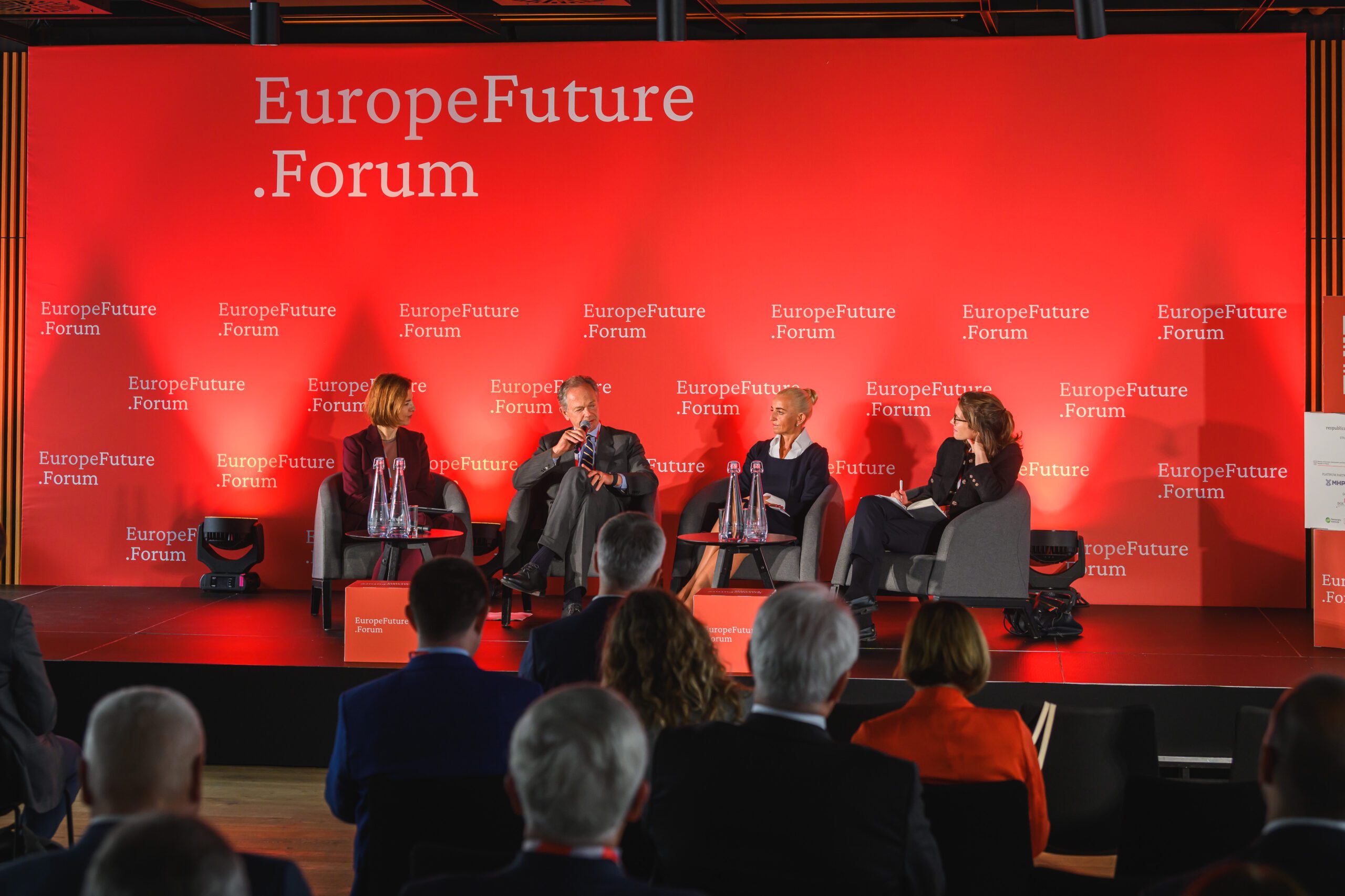
Held from 15-17 September at the heart of Central Europe, the forum’s opening salvos underscored how EU expansion isn’t just a bureaucratic box-ticking exercise but a strategic lifeline. With Ukraine’s war raging and China’s overcapacities looming, speakers hammered home the message: welcoming new members from the Western Balkans and Eastern Partnership could turbocharge Europe’s resilience, fusing democratic values with economic muscle to counter authoritarian rivals.
Magda Jakubowska, the forum’s convener and Visegrad Insight’s editorial director, set the tone with a rallying cry for ‘bold actions’ on technological sovereignty, defence funding, and energy transitions. ‘Economic security is no longer a question; it’s a survival strategy,’ she declared, nodding to the post-2027 multiannual financial framework (MFF) as the make-or-break arena for an enlarged EU. Her remarks, echoed in several other discussions throughout the Forum highlighted the forum’s emphasis on Central and Eastern European voices — a deliberate pivot to ensure ‘balanced views’ in a bloc often dominated by Western capitals.
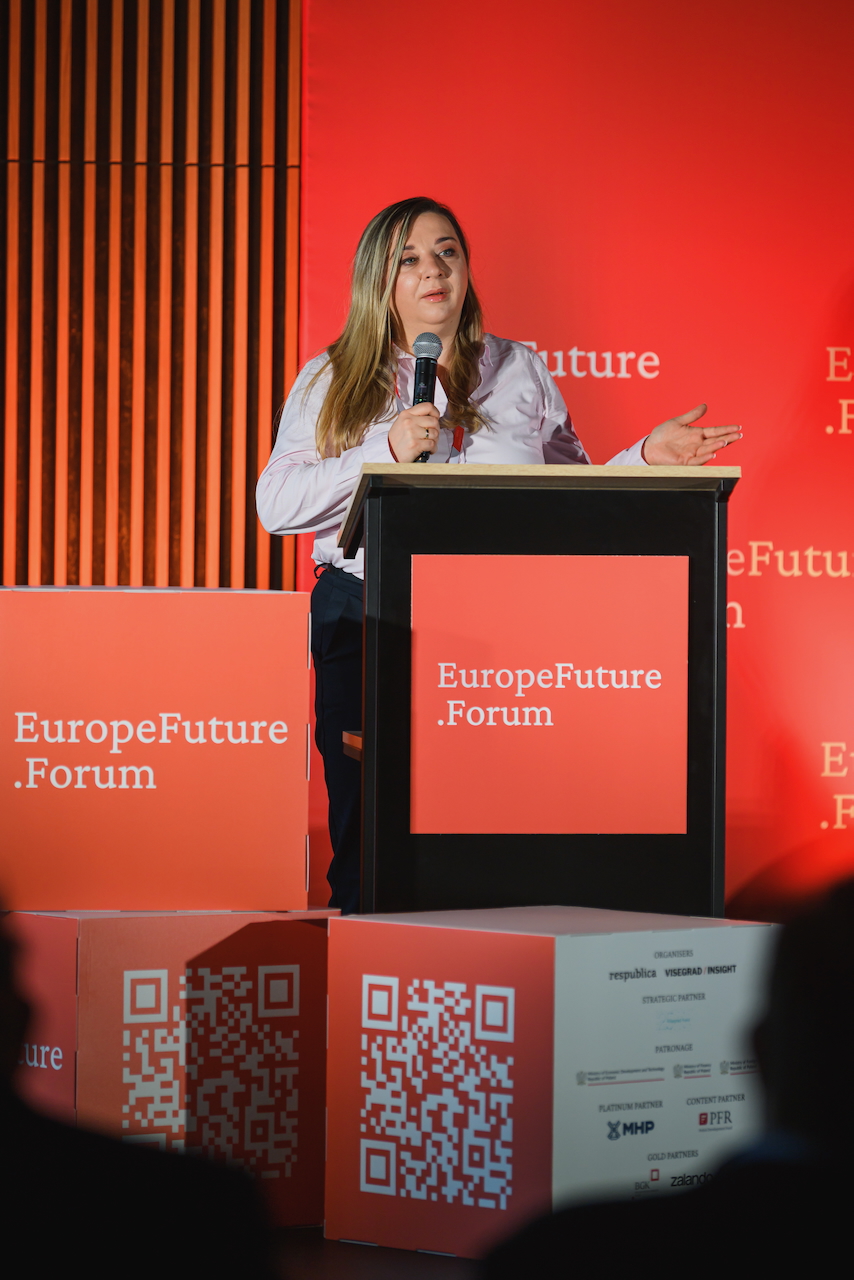
Linda Kapustová-Helbichová, executive director of the International Visegrad Fund — celebrating this year its 25th anniversary and strategic partner of the Forum — doubled down on regional synergy. Quoting European Commission President Ursula von der Leyen, she dismissed V4 paralysis, positioning the fund as a bridge-builder for EU hopefuls. The aim is to reflect both expectations and readiness for EU accession from our Eastern and Southern neighbours.
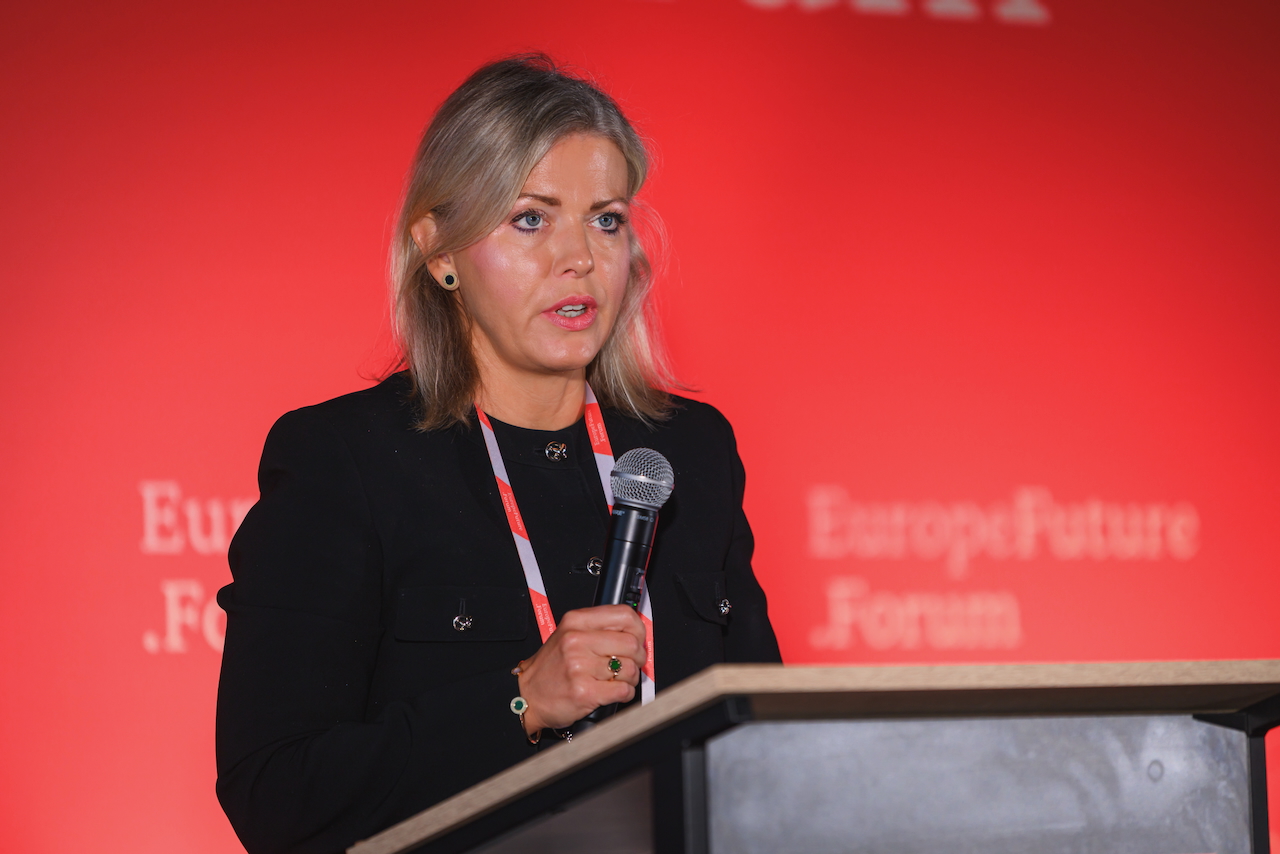
Wojciech Przybylski, president of the Res Publica Foundation and Visegrad Insight’s editor-in-chief, reframed the age-old ‘guns or butter’ dilemma as ‘guns and butter.’ Invoking historical lessons from the Cold War, he argued that linking security spending to trade and public buy-in could ‘corner populism’ and rally disenchanted voters. ‘Budgets are statements of our values,’ he intoned, urging a revamped MFF to reflect enlargement’s dual promise: bolstering defence while delivering prosperity. His words resonated in forum-linked podcasts, where experts dissected how new members could inject fresh dynamism into Europe’s sluggish growth model.
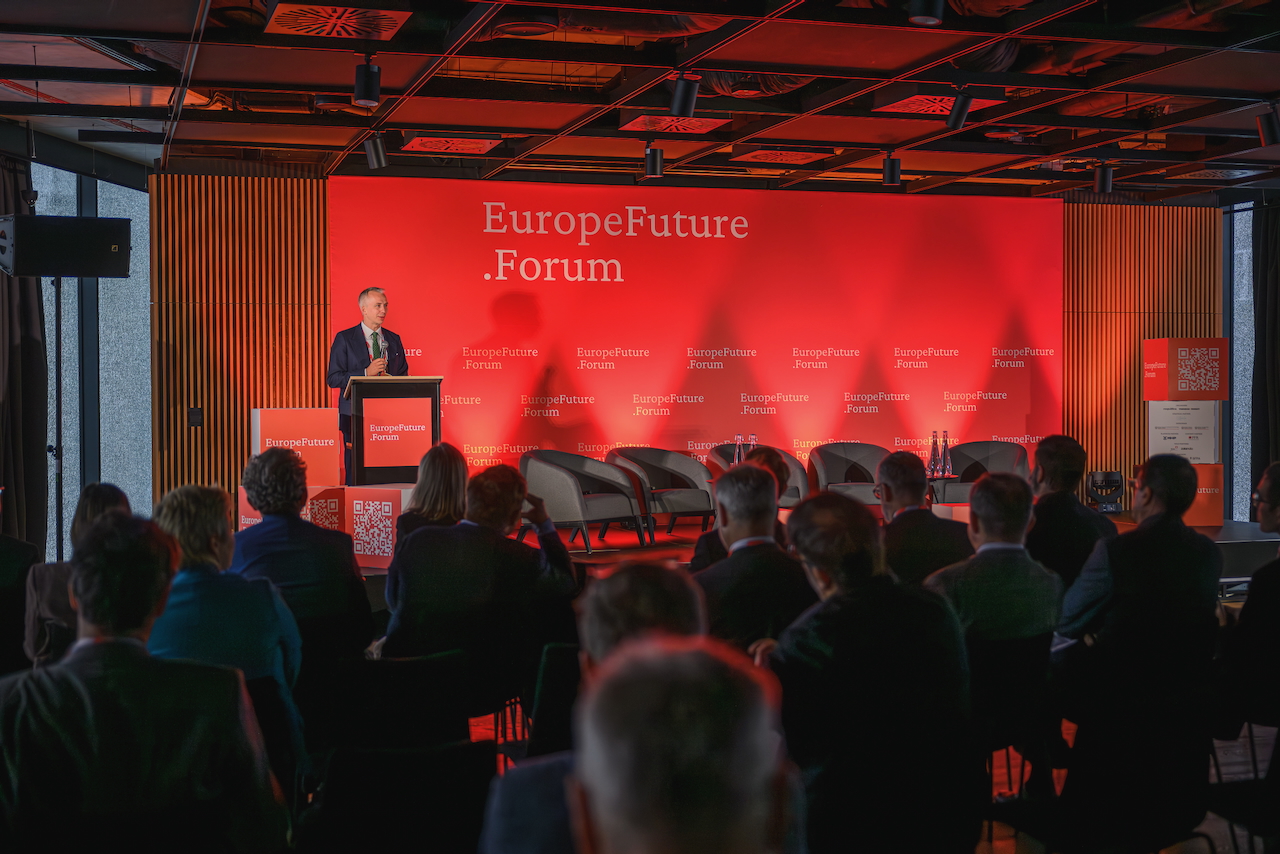
Polish MEP Michał Szczerba, a foreign affairs committee member, brought the geopolitical heat, detailing 19 Russian airspace violations in recent days — including a drone crash perilously close to a NATO airbase. ‘Alliances matter,’ he thundered, slamming potential US-Moscow backroom deals and calling for ramped-up air defences, joint procurement, and Ukraine’s integration into Europe’s defence industrial base.
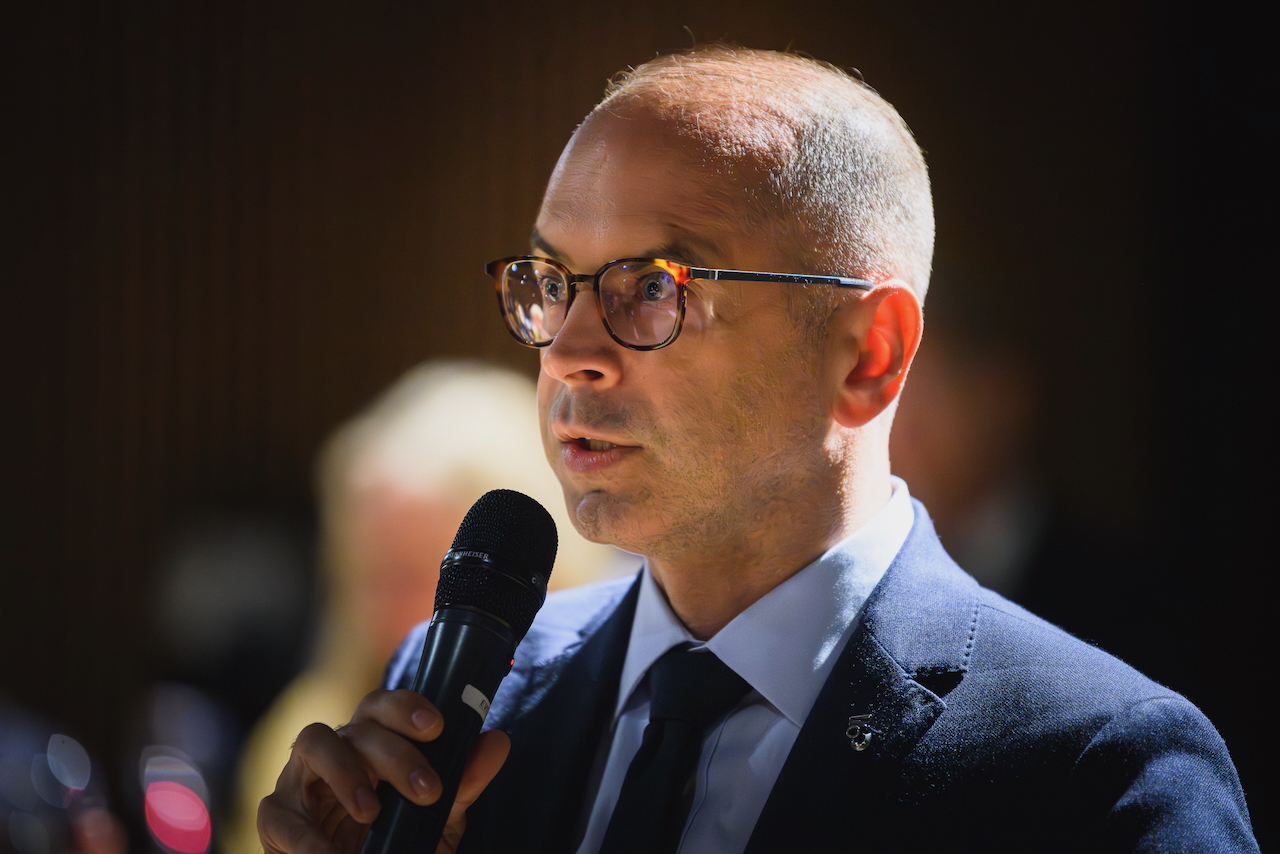
‘Supporting Ukraine today is the best investment in Europe’s defence tomorrow,’ Szczerba asserted. He tied this directly to enlargement, advocating simplified EU funding for Polish-led initiatives like East Shield to fortify the bloc’s eastern flank.
Paweł Świeboda, senior fellow at the European Policy Centre and co-director of the Brussels Economic Security Forum, delivered the inspirational keynote, dissecting the ‘end of globalism’ without descending into doom-mongering.
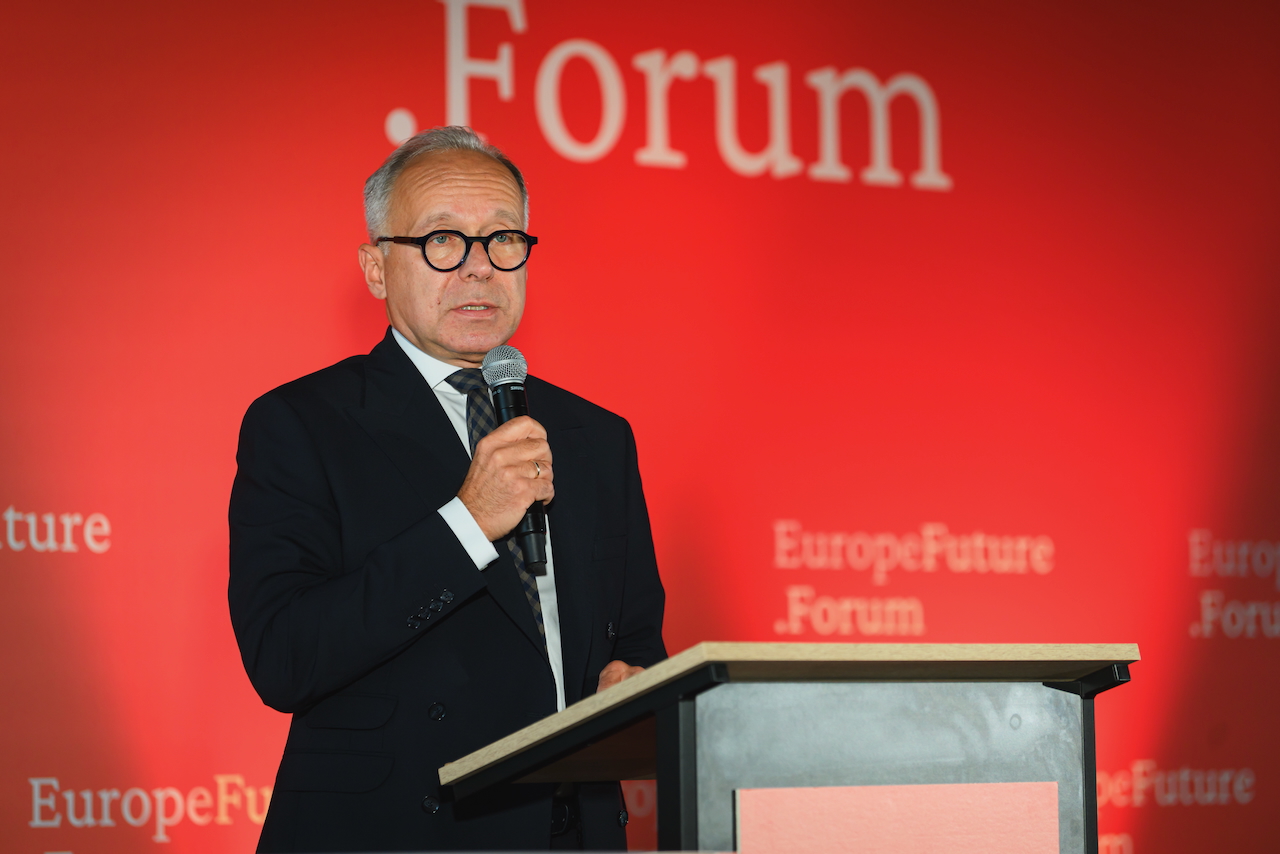
He warned of bifurcated trade — US tariffs slowing one lane while Asia races ahead — and urged Europe to ‘build strength inside out’ through AI productivity boosts and critical raw materials diversification. ‘Economic security post-2025 will need to be about much more than risks; the very vibrancy of our model is at stake,’ he said, pushing for reinvented partnerships with like-minded allies to counter China’s overcapacities. His call for a geo-industrial edge in EU ties aligned with forum chatter in a number of closed door sessions where deeptech discussions spotlighted enlargement as a catalyst for innovation hubs in new members.
Threaded throughout was the forum’s core pitch: EU enlargement isn’t a luxury but a necessity for navigating economic turbulence. With candidates like Ukraine and the Western Balkans in the wings, speakers portrayed expansion as a multiplier for security and growth — integrating defence industries, diversifying supply chains, and amplifying Central Europe’s clout in Brussels. As Visegrad Insight’s site notes, the event fosters ‘comprehensive dialogue’ on this front, with foresight sessions drilling into policy innovations.
Yet, challenges loomed large: funding shortfalls, hybrid threats, and US unpredictability under Trump. As one attendee quipped on LinkedIn, it’s ‘time for Europe to step up’ — a sentiment echoing broader many other conferences in the region. If Warsaw’s gathering is any indicator, the path to a bigger, bolder EU hinges on marrying enlargement’s promise with ironclad economic defences.
Stay tuned for more recaps from specific panel discussions and visit the Europe Future Forum website to learn more.
_
Strategic Partners: International Visegrad FundHonorary Patronage: Ministry of Foreign Affairs of the Republic of Poland, Ministry of Finance of the Republic of Poland, Ministry of Development and Technology of the Republic of PolandPlatinum Partner: MHPContent Partner: Polish Development Fund (PFR)Gold Partners: BGK Polish Development Bank, ZalandoPartners: OECD, CEU Democracy Institute, EUROPEUM, Slovak Foreign Policy Association (SFPA)
Photos by Mariusz Bodnar and Paweł Konarzewski.
Click the banner to register for the events